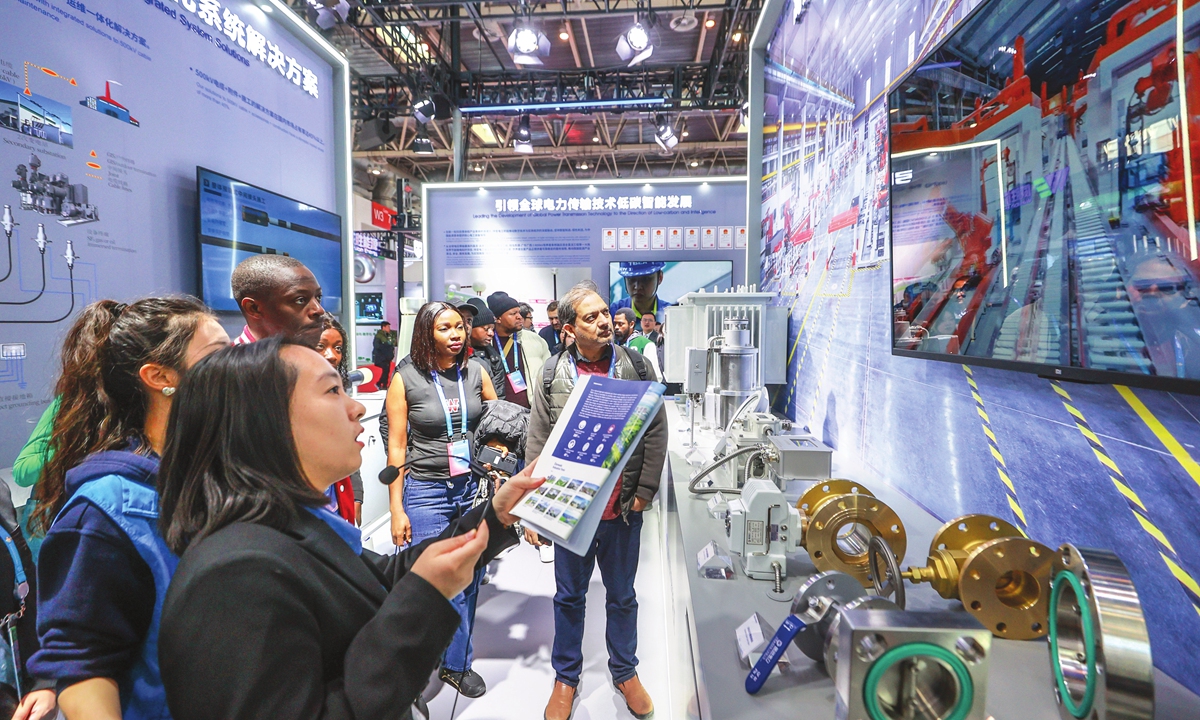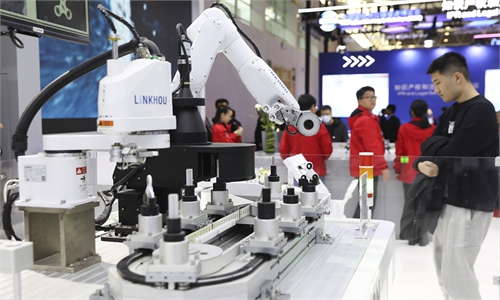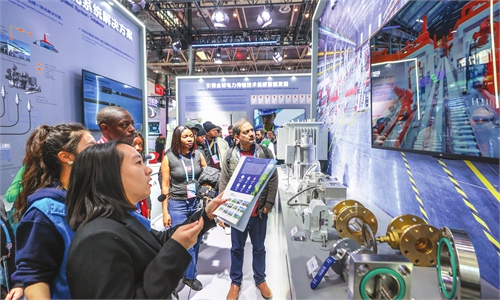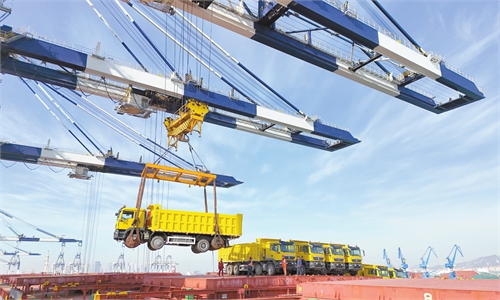
Foreign visitors tour the first China International Supply Chain Expo in Beijing on December 2, 2023. Photo: cnsphoto
Themed "Connecting the World for a Shared Future," the second China International Supply Chain Expo (CISCE) is scheduled to take place in Beijing from Tuesday to Saturday.
As the world's first supply chain-themed expo, the event takes place at a time when global supply chains are grappling with unprecedented challenges. Its significance transcends the mere promotion of international cooperation in industrial and supply chains; it embodies the profound dynamics of modern times.
In the context of significant shifts in global geopolitics, the US is attempting to establish a supply chain that it dominates, aiming to undermine China's position in the global supply chain through various means. This approach not only challenges the principles of globalization but also heightens the risk of global trade fragmentation.
At its core, globalization is operated on cooperation and mutually beneficial outcomes among nations, fostering shared prosperity through optimized resource allocation, reduced production costs, and enhanced efficiency. However, the US is apparently trying to secure its economic interests and strategic position by going against the logic of the globalization era. This has prompted more countries to recognize the risks associated with US dominance.
While "de-risking" was initially a strategy employed by Western nations to distance themselves from China, it has gradually led to a scenario in which many countries have to grapple with more supply chain uncertainties.
This trend is, in fact, a response to US unilateralism and an inevitable outcome of nations pursuing equality, mutual benefit, and win-win scenarios in the ongoing process of globalization.
The development of the global supply chain has its inherent logic, and any attempts to alter this logic through unilateral actions are destined to fail. China is an important component of the global supply chain, and its role is irreplaceable. Its contributions to global trade and the economy are undeniable, evident from its vast market size, manufacturing capabilities, and technological innovations. Consequently, any efforts to exclude China from the global supply chain are unrealistic.
Compared with the US, China has consistently aligned its actions with the prevailing logic of the times, actively promoting the stability and development of global industrial and supply chains. By hosting the second CISCE, China not only reaffirms its dedication to balanced global trade but also demonstrates its resolve to enhance global economic stability and development.
It is worth noting that amid profound changes in the global economic landscape, the rise of emerging economies has become an undeniable force. The continuous enhancement of these countries' market capabilities and manufacturing capacities has gradually elevated their position within the global supply chain. China's support for the advancement of emerging economies not only contributes to a more balanced global economy but also signifies its active participation in the adjustment of the global economic order.
This is why this year's CISCE is particularly focused on expanding unilateral openness to the least developed countries. China has invited African exhibitors and provided support such as free exhibition spaces and setup services, aiming to help developing countries and regions showcase and promote their businesses. Through the CISCE platform, China can offer these countries not just an opportunity to highlight their unique advantages and characteristics, but also assist them in enhancing their position and competitiveness in the global supply chain through technology transfer, financial support, and other means.
In summary, CISCE serves as both an important impetus for the stability of global supply chains and a vivid manifestation of the concept of joint development among countries in the globalization era. While some countries attempt to reverse globalization, China has always been active in championing supply chain cooperation and high-quality development. The openness and inclusiveness demonstrated by China in this process are crucial driving forces for advancing the global economy.
Global Times



